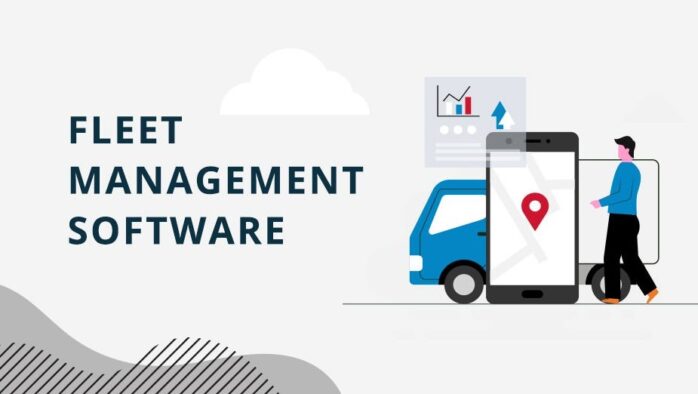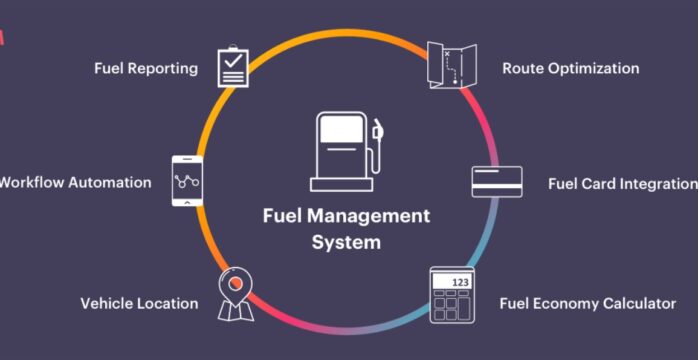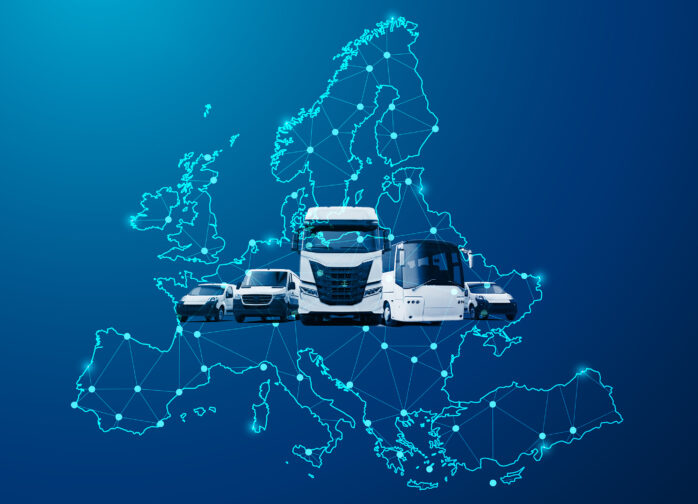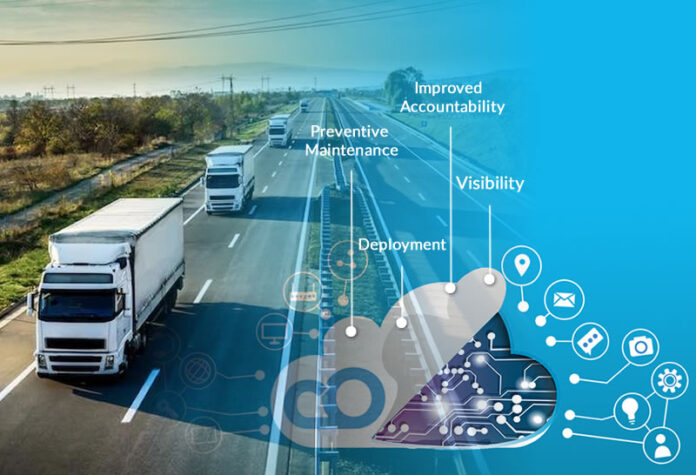The maritime industry, traditionally rooted in manual processes and paper-based systems, is undergoing a significant transformation due to digitalization. Fleet management, in particular, is experiencing a revolution driven by advanced digital tools and technologies. These innovations are enhancing operational efficiency, safety, and sustainability, making fleet management more streamlined and effective. In this article, we explore the profound impact of digitalization on fleet management (including transformative AI) and its benefits for the maritime industry.
Enhanced Operational Efficiency

Digitalization brings a wealth of tools that improve the efficiency of fleet operations. One of the key advancements is the integration of fleet management software. This software allows real-time tracking of vessels, monitoring of routes, and management of schedules. By providing a centralized platform for all fleet-related activities, it reduces administrative burdens and enhances decision-making.
Moreover, digital tools enable predictive maintenance, which significantly cuts down on unplanned downtime. Sensors and IoT (Internet of Things) devices installed on vessels collect data on engine performance, fuel consumption, and other critical parameters. This data is analyzed using advanced algorithms to predict when maintenance is needed, thus preventing breakdowns and reducing maintenance costs.
Improved Safety Measures
Safety is paramount in the maritime industry, and digitalization plays a crucial role in enhancing it. AI-powered systems are now being used for collision avoidance and route optimization. These systems analyze data from multiple sources, including weather forecasts, sea conditions, and vessel traffic, to provide real-time recommendations for safe navigation.
Furthermore, digital platforms facilitate better communication between the ship and shore. In emergencies, instant data transmission can be lifesaving. Enhanced connectivity ensures that crews can receive immediate assistance and support, reducing the risk of accidents and improving overall safety standards.
Sustainable Practices

The maritime industry is under increasing pressure to adopt sustainable practices, and digitalization is a key enabler of this transition. Digital tools help in monitoring and reducing fuel consumption, which is a significant contributor to greenhouse gas emissions. By analyzing data on fuel usage, speed, and sea conditions, these tools can recommend optimal speeds and routes that minimize fuel consumption.
Additionally, digitalization supports compliance with environmental regulations. Automated systems can track emissions and report them accurately, ensuring that vessels adhere to international standards. This not only helps in protecting the environment but also avoids penalties and fines associated with non-compliance.
Enhanced Data Analytics
One of the most significant advantages of digitalization is the ability to harness the power of big data. Fleet management generates vast amounts of data daily, from vessel performance metrics to cargo information. Advanced data analytics tools can process this data to provide valuable insights.
For instance, data analytics can identify patterns and trends that help in optimizing fleet operations. It can highlight inefficiencies, predict demand, and improve inventory management. These insights enable fleet managers to make informed decisions that enhance operational efficiency and profitability.
Cybersecurity Challenges
While digitalization offers numerous benefits, it also introduces new challenges, particularly in the realm of cybersecurity. The increased reliance on digital systems makes maritime operations vulnerable to cyberattacks. Protecting sensitive data and ensuring the integrity of digital systems is paramount.
To address these challenges, the maritime industry is adopting robust cybersecurity measures. These include implementing advanced encryption protocols, conducting regular security audits, and training crew members on cybersecurity best practices. By prioritizing cybersecurity, the industry can safeguard its digital infrastructure and ensure the smooth operation of fleet management systems.
AI and Fleet Management
Artificial Intelligence (AI) is at the forefront of digital innovations transforming fleet management. AI technologies are providing unprecedented capabilities in data processing, decision-making, and operational efficiency.
- Predictive Maintenance: AI algorithms analyze data from ship sensors and machinery to predict potential equipment failures before they occur. This proactive approach allows for timely maintenance, reducing the risk of accidents caused by mechanical issues and minimizing downtime.
- Real-Time Monitoring and Anomaly Detection: AI systems continuously monitor vessel operations and environmental conditions, detecting anomalies that may indicate safety risks. These systems can alert crew members to take immediate action, preventing accidents and ensuring smooth operations.
- Collision Avoidance: Advanced AI-powered navigation systems help in identifying potential collision risks by analyzing data from radar, AIS (Automatic Identification System), and other sensors. These systems provide real-time recommendations to the crew for safe maneuvering and course adjustments.
- Weather Forecasting and Route Optimization: AI models analyze weather patterns and sea conditions to provide accurate forecasts, helping ships to avoid hazardous weather and optimize routes for safety and fuel efficiency.
- Crew Fatigue Monitoring: AI tools can assess crew members’ fatigue levels by analyzing work patterns, sleep schedules, and other health metrics. Early detection of fatigue allows for better crew management and reduces the likelihood of accidents caused by human error.
- Incident Analysis and Learning: AI systems can analyze past maritime incidents to identify patterns and root causes. This knowledge is used to develop better safety protocols and training programs, enhancing overall maritime safety standards.
By integrating AI into maritime safety practices, the industry is moving towards a more predictive and preventive approach, minimizing risks and enhancing the safety of vessels, crew, and cargo. As AI technology continues to evolve, its role in ensuring maritime safety will become even more critical, paving the way for smarter and safer seas.
Integration with Maritime Law
The legal framework surrounding maritime operations is also evolving to keep pace with digitalization. Maritime laws now include provisions for the use of digital tools and technologies. For instance, electronic documentation and digital contracts are becoming more prevalent, simplifying legal processes and reducing paperwork.
Additionally, digitalization aids in legal compliance by ensuring accurate record-keeping and reporting. This is particularly important in the event of maritime accidents or disputes. Digital records provide a clear and transparent trail of events, which can be crucial in legal proceedings.
Case Studies and Examples
Several real-world examples illustrate the transformative impact of digitalization on fleet management. For instance, Maersk has implemented advanced digital tools to enhance its fleet operations. By leveraging IoT and data analytics, Maersk has achieved significant improvements in fuel efficiency and operational reliability.
Another example is CMA CGM, which uses AI-powered systems for route optimization and predictive maintenance. These digital solutions have enabled CMA CGM to reduce operational costs and improve service delivery.
The Future of Digitalization in Fleet Management

Looking ahead, the future of fleet management lies in further embracing digitalization. Emerging technologies such as blockchain, artificial intelligence, and autonomous vessels will continue to drive innovation. Blockchain, for instance, can enhance transparency and security in supply chain operations, while autonomous vessels promise to revolutionize maritime logistics by reducing human error and improving efficiency.
As the maritime industry navigates this digital transformation, collaboration and continuous innovation will be key. Stakeholders must work together to develop and implement digital solutions that address the unique challenges of fleet management. By doing so, the industry can unlock new levels of efficiency, safety, and sustainability.
Conclusion
Digitalization is reshaping fleet management in the maritime industry, offering numerous benefits including enhanced operational efficiency, improved safety measures, sustainable practices, and advanced data analytics. While cybersecurity challenges remain, robust measures are being adopted to safeguard digital systems. The integration of digital tools with maritime law further streamlines operations and ensures compliance. As digitalization continues to evolve, the future of fleet management looks promising, with emerging technologies poised to drive further innovation and transformation.
By embracing digitalization, the maritime industry can achieve a more efficient, safe, and sustainable future, navigating the seas with greater confidence and competence.




